|
Story originally published by DeSmog
An unprecedented climate lawsuit brought by six Portuguese youths is to be fast-tracked at Europe’s highest court, it was announced today. The European Court of Human Rights said the case, which accuses 33 European nations of violating the applicants’ right to life by disregarding the climate emergency, would be granted priority status due to the “importance and urgency of the issues raised." This is the first climate lawsuit to be filed with the international court in Strasbourg, France, and campaigners say the decision represents a major step towards a potential landmark judgment. ‘Protect our future’ Cláudia Agostinho (21), Catarina Mota (20), Martim Agostinho (17), Sofia Oliveira (15), André Oliveira (12) and Mariana Agostinho (8) are bringing the case with nonprofit law firm Global Legal Action Network (GLAN), arguing that none of the countries have sufficiently ambitious targets to cut their emissions. Portugal recently sweltered through its hottest July in 90 years and has seen a rise in devastating heatwaves and wildfires over recent years due to rising temperatures. Four of the applicants live in Leiria, one of the regions worst-hit by the forest fires that killed over 120 people in 2017. Responding to the development, André Oliveira, 12, said: “It gives me lots of hope to know that the judges in the European Court of Human Rights recognise the urgency of our case.” “But what I'd like the most would be for European governments to immediately do what the scientists say is necessary to protect our future. Until they do this, we will keep on fighting with more determination than ever.” ‘Highly significant’ The decision represents a “highly significant” step, GLAN director Dr. Gearóid Ó Cuinn said in a press release. “This is an appropriate response from the Court given the scale and imminence of the threat these young people face from the climate emergency,” he added. By suing the 33 countries all together, the youths aim to compel these national governments to act more aggressively on climate through a single court order, which would potentially be more effective than pursuing separate lawsuits or lobbying policymakers in each country. If successful, the defendant countries would be legally bound not only to ramp up emissions cuts, but also to tackle overseas contributions to climate change including those of their multinational enterprises. ‘Major hurdle’ The countries targeted include all of the European Union member states as well as Norway, Russia, Switzerland, Turkey, Ukraine and the United Kingdom, none of which are currently aligned with Paris Agreement target to limit global temperature rise to well below 2 degrees C (3.6 degrees F) and pursue a limit of 1.5 degrees C (2.7 degrees F). Climate Action Tracker rates most of Europe as “insufficient” in terms of its emissions reduction policies based on the Paris target, while Ukraine, Turkey and Russia are assessed as “critically insufficient” – meaning they are on track for a warming of 4 degrees C or higher. The European Union has pledged to slash its emissions by at least 55 percent by 2030. But the Portuguese youth plaintiffs are calling for cuts of at least 65 percent by 2030, a level that European climate campaigners say is necessary to meet the 1.5 degrees warming limit. The 33 countries must each respond to the youths’ complaint by the end of February, before lawyers representing the plaintiffs will respond to the points of defence. “Nothing less than a 65 percent reduction by 2030 will be enough for the EU member states to comply with their obligations to the youth-applicants and indeed countless others,” Gerry Liston, Legal Officer with GLAN, said in a press release. “These brave young people have cleared a major hurdle in their pursuit of a judgment which compels European governments to accelerate their climate mitigation efforts.”
0 Comments
Fossil fuel corporations facing a slew of climate accountability lawsuits from municipalities and states are fighting vigorously to have the cases litigated in federal rather than state courts. Here is where the lawsuits stand* heading into December 2020:
* Procedural updates based on info from the Center for Climate Integrity. CCI case status chart last updated Nov. 19, 2020. Baltimore v. BP et al. Case brought by the City of Baltimore against nearly two-dozen fossil fuel producers is currently being briefed in the U.S. Supreme Court. The Supreme Court granted the fossil fuel defendants’ petition on Oct. 2 to review a wonky procedural question – specifically whether appellate courts can review an entire order sending (or remanding) a case back to state court, or whether that review is limited to two narrow exceptions. The fossil fuel companies (brief filed Nov. 16) argue that the appellate review of remand orders should not be limited, and further urge the Supreme Court to determine the case belongs in federal court. So far two federal courts – a district court and the Fourth Circuit Court of Appeals – rejected the companies’ federal jurisdiction arguments and sent (remanded) the case to Maryland state court where it was originally filed. The case had been proceeding in state court but is currently paused pending the Supreme Court resolution and pending another Supreme Court case (Ford Motor case) involving personal jurisdiction disputes. Baltimore will next file its brief in the Supreme Court. The Court will hear the case on January 19, 2021. Boulder County et al. v. Suncor and Exxon Case currently paused (stayed) in Colorado state court pending the outcome of the Ford Motor case in the Supreme Court on personal jurisdiction issues. The city and county of Boulder and the county of San Miguel in Colorado sued ExxonMobil and Suncor entities over climate damages in April 2018 in Colorado state court. A battle over federal vs. state court jurisdiction followed, and both a federal district judge and the 10th Circuit Court of Appeals ruled the case belongs in state court. A state court judge heard arguments on the companies’ motion to dismiss on June 1, 2020. Charleston v. Brabham Oil Co. et al. Case currently being briefed on a motion to stay (pause) proceedings pending resolution of Baltimore’s case in the Supreme Court. The city of Charleston, South Carolina sued 24 petroleum firms on Sept. 9, 2020 in South Carolina state court alleging the companies engaged in campaigns of deception to publicly downplay climate risks; the lawsuit seeks to hold the companies – including big names like BP, Chevron, ExxonMobil and Shell – liable for costly climate impacts facing this southern coastal city like extreme flooding and coastal erosion due to sea level rise. It is the first climate lawsuit brought against the fossil fuel industry by a city in the American South. Connecticut v. ExxonMobil Case currently being briefed in federal court after Exxon moved the case there in October. The state of Connecticut sued ExxonMobil on September 14 in Connecticut state court under a state consumer protection law called the Unfair Trade Practices Act, alleging Exxon misled Connecticut consumers and deceived the public on climate risks stemming from fossil fuels. Connecticut is the fifth state to bring a climate accountability lawsuit against Exxon; the case is in the very early procedural stages. Exxon argued in a recent brief filed in federal court (U.S. District Court for the District of Connecticut) that it doesn’t sell gas in the state, claiming the company’s branded gas stations are independently operated, and therefore the state lacks personal jurisdiction over Exxon. Connecticut will respond next and the state is expected to request the court send (remand) the case back to state court. The state’s motion to remand is expected by December 2, 2020. Delaware v. BP et al. Case currently being briefed in federal court after Chevron and other fossil fuel defendants moved the case there in October. Delaware (via Attorney General Kathy Jennings) brought this lawsuit against 30 fossil fuel firms and the American Petroleum Institute – Big Oil’s largest lobby and trade association – alleging they engaged in campaigns of deception to undermine climate science and downplay the risks of fossil fuels. The lawsuit was filed September 10, 2020 in Delaware Superior Court (a state court) and includes a claim alleging violation of Delaware’s Consumer Fraud Act. The companies are expected to argue the case is not actually about fraud, but about global emissions and therefore it belongs in a federal forum. Delaware filed a motion to remand in November explaining the case does not raise federal issues and should be litigated in state court. The remand issue is expected to be fully briefed by April 2021. District of Columbia v. ExxonMobil et al. Case is currently pending in federal court (U.S. District Court for the District of Columbia) on the issue of remand, or whether the lawsuit belongs in state or federal court. DC filed the case in DC Superior Court (state court) on June 25, 2020 alleging major oil companies violated the DC Consumer Protection Procedures Act for their deceptive conduct on communicating the risks of climate change. As with the other climate accountability lawsuits against fossil fuel companies, the industry defendants are fighting to push the case to federal courts where they see an easy path to dismissal. DC filed a motion to remand to state court, and this motion has now been fully briefed. Hoboken v. ExxonMobil et al. Case currently being briefed in federal court (U.S. District Court for the District of New Jersey) after fossil fuel defendants moved the case there on Oct. 9, 2020. The city of Hoboken, NJ sued a handful of major fossil fuel companies plus the American Petroleum Institute on September 2, 2020 in New Jersey state court to hold the companies accountable for climate impacts and related costs. The lawsuit includes allegations of deception and a legal claim under the New Jersey Consumer Fraud Act, a state law. The fossil fuel defendants argue the case invokes federal laws and should be in federal court. Hoboken is expected to file a motion to remand to state court. The remand issue will be fully briefed by the end of February 2021. The Supreme Court ruling in Baltimore’s climate case could impact the procedural track of cases like Hoboken’s that are just beginning the state vs. federal court tug-of-war. Honolulu v. Sunoco et al. Case currently paused in federal court until a similar Hawaiian climate case brought by Maui finishes briefing on the remand issue. The city and county of Honolulu sued major oil companies in March 2020 alleging their deceptive conduct has exacerbated climate impacts; case filed in Hawaii state court. The oil companies moved the case to federal court. Honolulu moved to remand back to state court. The remand issue has been fully briefed but the court paused proceedings to allow a case brought by Maui County in October to complete briefing on this same issue. The Maui case briefing will finish by January 20, 2021. King County v. BP et al. Case paused (stayed) pending the outcome of the Ford Motor case in the Supreme Court on personal jurisdiction. King County, Wash. (home to Seattle) sued five major oil companies in May 2018 in state court to hold them accountable for climate impacts. Fossil fuel defendants moved the case to federal court, though it has been on hold since October 2018. The case is still paused as similar climate tort cases, particularly one brought by Oakland and San Francisco targeting the same five defendants with similar legal claims - wind their way through the courts. Massachusetts v. ExxonMobil Case currently proceeding in state court, where Exxon is trying to get the lawsuit dismissed. Massachusetts brought its climate fraud case on October 24, 2019 alleging Exxon misled the state’s consumers and investors on climate risks in violation of the state’s consumer protection law. Exxon first unsuccessfully moved the case to federal court; now the oil major is arguing the case should be thrown out in state court. Massachusetts is opposing Exxon’s motion to dismiss. The court has not yet made the arguments (briefings) public; full briefing on the motion to dismiss will finish by December 18, 2020. Maui v. Sunoco et al. Case currently being briefed in federal court after fossil fuel defendants moved the case there on Oct. 30. The County of Maui in Hawaii filed a climate accountability lawsuit on Oct. 12, 2020 against major fossil fuel companies, similar to the case brought earlier this year by Honolulu. Maui filed its case in Hawaii state court, but the companies are fighting to have the case in federal court. Maui is expected to file a motion to remand its lawsuit back to state court. Briefing on the remand issue will complete by January 20, 2021. Minnesota v. American Petroleum Institute et al. Case currently completing briefing in federal court on the motion to remand. Minnesota filed its climate fraud case (alleging violation of state laws) in Minnesota state court on June 24, 2020 targeting Exxon, API, and Koch Industries. The oil industry defendants moved the case to federal court, and Minnesota moved to remand back to state court. Briefing on the remand motion will finish by December 21, 2020. New York City v. BP et al. Case currently awaiting a decision from the Second Circuit Court of Appeals on NYC’s appeal of a federal district court’s dismissal of its case against five major oil companies. New York City sued BP, Chevron, ConocoPhillips, ExxonMobil and Shell in January 2018 seeking monetary damages to help pay for climate impacts. NYC originally sued in federal court, and the federal district judge dismissed the case – precisely the outcome that fossil fuel defendants are striving for in all of the other climate accountability lawsuits. NYC appealed the order to dismiss, and the case is still pending in the appeals court. Pacific Coast Federation of Fishermen’s Associations v. Chevron et al. Case had been paused after being moved to federal court; case management conference scheduled for December 16, 2020. This lawsuit is the single one (so far) not brought by a government entity, rather by a commercial fishing association on the West Coast suffering reduced crab catches due to warming oceans. The fishermen’s association sued major fossil fuel companies to hold them liable for climate impacts (like rising ocean temperatures) stemming from their fossil fuel products. The case was filed in California state court, but the companies moved it to federal court. The case had been paused pending resolution of appeals on federal vs. state court jurisdiction in similar climate cases brought by California municipalities. Rhode Island v. Chevron et al. Case currently paused (stayed) in state court pending outcome of cases involving personal jurisdiction issues in the U.S. Supreme Court and Rhode Island Supreme Court. Rhode Island was the first state to sue fossil fuel producers over local climate impacts, filing its case in Rhode Island state court in July 2018. The fossil fuel defendants tried to punt the case to federal court, but the federal district court and the First Circuit Court of Appeals both ruled the case belongs in state court. Briefing (including a motion to dismiss) had begun this year in Rhode Island state court, though the case is on hold for now. San Mateo et al. v. Chevron et al. Cases currently paused while fossil fuel defendants file an appeal with the U.S. Supreme Court, with Supreme Court petition filed by Nov. 30. A handful of coastal California cities and counties are suing oil companies over the costs of adapting to sea level rise and other climate impacts. This litigation was filed in 2017 (and early 2018) in California state courts, and the lawsuits were embroiled in the federal vs. state court battle – with the federal district court and federal appeals court (9th Circuit) both deciding the suits belong in state court. The oil companies asked the 9th Circuit appeals court to reconsider its ruling, but the court refused. Now the companies are taking their fight to the Supreme Court. San Francisco and Oakland v. BP et al. Case currently before the federal district court for reconsideration of the district judge’s decision that there is federal jurisdiction; case management conference scheduled for Dec. 16, 2020. Oakland and San Francisco sued the big five oil companies in September 2017 seeking to recover costs associated with climate impacts. The companies moved the case to federal court, and the federal district judge initially dismissed the case in June 2018. Oakland and San Francisco appealed, and the Ninth Circuit Court of Appeals revived the case and ruled in the cities’ favor in May 2020. The appeals court found there were no federal issues and sent the case back to the district court for the judge to reconsider his decision that the case belongs in federal court.
Story originally published by DeSmog
A French court this week issued what climate campaigners are calling a “historic decision” in the fight to hold national governments accountable for insufficient action to address the climate crisis. The decision finds that France in recent years has exceeded its “carbon budgets” -- the upper limit of allowable carbon emissions to help keep warming below 2 degrees Celsius (3.6 degrees Fahrenheit). The French government must now justify within the next three months how its refusal to take more stringent measures to curb emissions in line with the Paris Agreement puts the nation on track to meet its 2030 emissions reduction target. This is the first court ruling of its kind in France -- and it could influence other ongoing climate lawsuits in the country. The decision is the latest in a string of successful legal challenges to European governments' inadequate policies to tackle the climate crisis, including in Ireland and most famously in the Netherlands, which was the first time a court anywhere in the world ruled that a national government has a legal duty to prevent dangerous climate change. While the decision this week in France does not order the French government to take more aggressive climate action (as was the case with the Dutch government), it is one step away from that. If the court finds the French government's justification for its less-ambitious targets insufficient, it could order the nation to take action to rapidly slash emissions. France ranks among the top 20 carbon polluters in the world, according to 2018 data analyzed by the Union of Concerned Scientists.
France’s highest-level administrative court, called the Conseil d’Etat (Council of State), issued its ruling on November 19. It's the result of a climate lawsuit brought against the French federal government by a coastal community in northern France that's particularly vulnerable to climate impacts.
That community, Grande-Synthe, filed its case in early 2019 following a rejection of the city’s request submitted to the French president and government urging additional actions to meet France’s climate targets, such as prioritizing climate policies and prohibiting fossil fuel expansion or other actions boosting greenhouse gas emissions. The cities of Grenoble and Paris -- home of the landmark international climate accord known as the Paris Agreement -- supported Grande-Synthe’s lawsuit, as did several nongovernmental organizations including Oxfam France, Greenpeace France, and Notre Affaire à Tous. These organizations are also currently suing the French government in a separate but related climate case that they call the “Affaire du Siècle” or “case of the century.” And the French supreme administrative court’s decision in the Grande-Synthe case is “already a first step towards victory” in that other case, said Greenpeace France. This week's decision recognizes a legal duty for the government to meet its climate targets. “This is a real revolution in law,” Notre Affaire à Tous continued, adding that climate laws “have so far been viewed by successive governments and parliaments as vague promises.” With this new ruling, the group said, it imposes on France “an obligation … to implement concrete and effective measures to achieve these objectives.”
France has set a national target, per its obligation under the Paris Agreement, to reduce its greenhouse gas emissions 40 percent (below 1990 levels) by 2030. This goal is established in national law, and the French government has adopted policies outlining emission reduction paths, consisting of emissions “ceilings” or budgets that periodically tighten, further restricting emissions limits.
But according to the ruling from the Conseil d’Etat, France is currently not on track to achieve its 2030 goal and has not complied with its own interim limits in the last several years. And this year due to the pandemic, the country, by decree, postponed further emissions reduction efforts. As a press release from the court explains, “while France has committed itself to reducing its emissions by 40 percent in 2030 compared to 1990 levels, it has, in recent years, regularly exceeded the 'carbon budgets' it had set itself.” According to the court, between 2015 and 2018, France reduced emissions on average by just one percent annually — that's less than the 2.2 percent annual cut France set out through its “budget” for that time. The court is now demanding answers from the government. “Conseil d’Etat is requesting the Government to justify how the reduction path to 2030 can be respected without stricter measures,” the press release states. The court’s decision also notes that it is prepared to order the French government to take additional measures to ensure France achieves its 2030 target, should it find the government’s response unsatisfactory. “From now on,” Greenpeace France said, ”the government will finally have to justify the concrete measures on the climate emergency. No more talk!” Lawyers representing BP, Chevron, ExxonMobil and other big oil and gas companies are urging the U.S. Supreme Court to find that a climate liability lawsuit brought against them by the city of Baltimore raises numerous federal issues and inherently belongs in federal courts, where the industry sees a clear path to getting this and similar climate cases thrown out. The fossil fuel lawyers made this federal jurisdiction argument in a brief filed Nov. 16 in the Supreme Court, though the argument distorts what the legal claims are actually about and reaches beyond the very specific question the Supreme Court is reviewing in this case.
Baltimore and other cities and states (as well as one commercial fishing association) around the country are suing major fossil fuel producers for allegedly deceiving the public on the climate consequences of their products for purposes of delaying climate policies and preserving profits. The industry’s successful deception and disinformation campaigns, the lawsuits contend, have turned climate change from a manageable problem to a full-scale crisis unfolding in the form of extreme flooding and rising seas, searing heat, more severe storms and other impacts, and communities like Baltimore are demanding the industry help pay for these costly impacts. In its Supreme Court brief, the fossil fuel industry does not once mention this alleged deception or fraudulent behavior. It instead argues the case is simply about global climate change and interstate greenhouse gas emissions, which are subject to federal regulations and raise issues of foreign and domestic policies and federal laws. The industry prefers to make these federal defenses rather than answer to allegations of deception (such as promoting/marketing harmful products) that are typically the province of state tort law. Baltimore brought its case under state law claims of nuisance and product liability theories as well as under a state statute, the Maryland Consumer Protection Act. Other cases seeking to hold the fossil fuel majors like Exxon and Chevron accountable for climate damages and alleged deception have similarly been brought under state law in state courts, from Honolulu to Boulder, Colo. to Rhode Island. The attorneys for Big Oil have strategically punted all of these cases to federal courts, because that is where the cases have a higher likelihood of being dismissed, as two cases (one filed by Oakland and San Francisco, another by New York City) initially were. Those two cases have since been revived on appeal, but a smaller wave of climate litigation from about a decade ago ultimately failed in federal courts and set the precedent – which includes a Supreme Court opinion – that global warming lawsuits arising under federal common law are displaced by the Clean Air Act. This precedent left open the possibility of climate lawsuits proceeding under state law, as they currently are, though the industry contends the current crop of cases all must arise under federal common law. The industry makes this argument in its brief recently submitted to the Supreme Court, though as a procedural matter the Court is deciding on a more technical question pertaining to the scope of appellate court review of remand orders, or orders sending cases back to state courts. In Baltimore’s case, the Fourth Circuit Court of Appeals agreed with a lower court that the case should be sent back to state court. The Fourth Circuit also rejected the oil companies’ argument that the entire remand order is subject to its review and that the court should hear a whole host of claims from the oil companies about why the case belongs in federal court. Three other appeals courts made the same ruling in other climate liability cases that review of remand orders is strictly limited. The oil companies are challenging these rulings, arguing the scope of review is not strictly limited. This technical question pertaining to federal rules of civil procedure is what the Supreme Court is deciding, not necessarily whether Baltimore’s case (and other climate cases) belong in federal or state court. But the companies say the Court should go beyond this question and determine that climate litigation belongs in federal court, period. As industry attorneys conclude in their brief, “the better course is for the Court to reverse the [Fourth Circuit] judgment outright and hold that [Baltimore’s] claims belong in federal court.” Baltimore will have a chance to respond and present its argument to the Supreme Court in a forthcoming brief. An Australian court earlier this month issued an order allowing a group called Bushfire Survivors for Climate Action to present expert evidence on climate science in a case against the New South Wales Environmental Protection Authority over the agency’s lack of climate policy. This is the first time an Australian court has decided on whether to permit climate change evidence to be heard in a lawsuit alleging failure by a government agency to perform its statutory duty, according to the nonprofit law firm Environmental Defenders Office (EDO), which is representing the bushfire survivors in this case.
“We are pleased that our clients are now able to present robust scientific evidence about climate change and its impact on people and the environment, and we welcome these orders by the court,” EDO’s Director of Legal Strategy Elaine Johnson said in a press release. Bushfire Survivors for Climate Action sued the New South Wales’ environment agency in April 2020 claiming the agency has failed to issue regulations or policies to slash greenhouse gas emissions consistent with limiting global temperature rise to 1.5 degrees Celsius – the target set forth in the Paris Agreement that nearly all countries including Australia have endorsed. Failure to rapidly rein in emissions, the plaintiffs argue, contributes to the worsening climate crisis that scientists say is linked to increasingly extreme weather and disasters like the unprecedented 2019-2020 bushfires that ravaged Australia, burning over 17 million hectares (over 42 million acres) and destroying over 3,000 homes. The legal action seeks to compel the Environmental Protection Authority to regulate greenhouse gas emissions under its statutory duty to protect the environment (New South Wales Protection of the Environment Operations Act 1997). According to Environmental Defenders Office, the state agency “has no policy to adequately address climate change and does not regulate the state’s emissions.” There is no federal EPA in Australia, but the state agency has the authority to control pollution and take other measures to mitigate climate change. The New South Wales Environmental Protection Authority has claimed, in its defense in this case, that it is complying with its statutory duty by developing guidelines “from time to time” to address GHG emissions. The plaintiffs - group of people who have experienced first-hand the devastation caused by major bushfires – will now be able to counter this argument by relying on expert scientific evidence to address whether emissions trajectories in New South Wales and Australia are on track to limit warming to 1.5 degrees Celsius and the link between climate change and bushfire risk. Former Australian Chief Scientist Professor Penny Sackett will present this expert testimony grounded in climate science. “As a result of these orders, bushfire survivors will, for the first time, be able to put evidence before a Court on the link between climate change and bushfire risk,” EDO’s Elaine Johnson said. “Following the devastation of the Black Summer bushfires, and the recent findings of the Royal Commission into natural disasters, that is a significant step forward. The orders also permit expert evidence on whether or not the world, Australia and NSW are on target to reduce emissions in line with the Paris goals.” “We hope this ruling to make it easier in future for similar cases to hear evidence about the causes and effects of climate change,” she added. According to EDO, the case is slated for a procedural “further directions” hearing on November 20. The case is before the Land and Environment Court in New South Wales. A court in Ontario, Canada has ruled that a constitutional climate lawsuit brought by seven young people against the provincial government can proceed to trial. That lawsuit – Mathur et al. v. Her Majesty the Queen in Right of Ontario – challenges the scaled back 2030 climate target set by the Ontario government under conservative Premier Doug Ford. The youth plaintiffs contend that the weaker climate policy - which would contribute to more dangerous climate change - is unlawful under the Canadian constitution that protects fundamental rights.
The decision issued November 12 by Ontario’s Superior Court of Justice rejects the government’s motion to dismiss the case. According to a press release from the nonprofit environmental law group Ecojustice (which supports the plaintiffs in this case), the decision marks the first time “a Canadian court has ruled that fundamental rights protected under the [Canadian Charter on Rights and Freedoms] can be threatened by climate change and citizens have the ability to challenge a Canadian government’s action on the climate crisis under the highest law in the land.” The plaintiffs – seven young Ontarians between the ages of 13 and 25 – filed the case in November 2019 against the government of Ontario alleging violations of sections 7 and 15 of the Canadian Charter, which establish rights to life, liberty, and security of the person and to equal justice under the law. Specifically the lawsuit challenges the government’s 2018 law repealing the 2016 Climate Change Act – which required Ontario to slash greenhouse gas emissions at least 37 percent (below 1990 levels) by 2030 – and replacing it with a plan that sets a laxer 2030 target of 30 percent emissions cuts. The youths say the government’s weaker policy on reining in emissions at a time of climate crisis endangers their health and their lives. “We know the climate crisis isn’t going away. The Government of Ontario’s failure to take necessary climate action is a violation of my Charter rights to life, liberty, and security of the person – and the rights of all Ontarians,” Alex Neufeldt, a 24-year-old plaintiff from Ottawa, said in a press release. “I look forward to seeing the Premier in court,” she added. “My fellow applicants and I understand that our future is at stake and we’re not backing down from this fight.” In the court’s ruling, Justice Carole J. Brown determined the case was justiciable, or able to be handled by courts, and found it was not obvious the plaintiffs’ claims had no reasonable chance of success, contrary to government’s position. The decision stands in contrast to a recent ruling from the Federal Court of Canada in a similar youth climate lawsuit (La Rose v. Her Majesty the Queen) dismissing that constitutional challenge to the federal government’s climate policies. But the Ontario case survived the initial bid to dismiss because, unlike the La Rose federal lawsuit, it challenged a specific policy (Ontario’s 2030 climate target) rather than the entirety of government conduct pertaining to energy and climate change. Lawyers representing the Ontario youth plaintiffs applauded the Superior Court’s decision to keep the case alive. “This landmark decision ensures the seven courageous young people leading this litigation will get their day in court. For the first time in Canadian judicial history, government inaction on the climate crisis will be put on trial,” Fraser Thomson, a lawyer with Ecojustice, said. “The government tried to argue that the courts aren’t the right place to address climate change, and that the problem is so big and complicated that Ontario’s targets can’t impact Charter rights,” added Nader Hasan, partner with the law firm Stockwoods LLP. “This victory is a resounding rebuke of those claims. The court agrees with us that this case should move ahead and we look forward to that happening.” Norway's Supreme Court to Decide on Climate Lawsuit Challenging Offshore Arctic Oil Drilling11/13/2020 Story originally published by DeSmog
The Supreme Court of Norway is set to rule in a high-profile climate change lawsuit challenging the Norwegian government’s licensing of new offshore oil drilling in the fragile and rapidly warming Arctic region. The forthcoming decision from Norway’s highest court could, for the first time anywhere in the world, invalidate offshore petroleum production on climate change grounds. Hearings before the country's Supreme Court in the case, dubbed The People v. Arctic Oil, began on November 4 and concluded on November 12; a decision is expected within the next few months. “The fate of the climate, and millions of people across the world affected by extreme weather events, hangs in the balance of every barrel of oil we either extract, or leave in the ground. The Norwegian state has an obligation to both the Paris Agreement and the Norwegian Constitution to minimise the health and safety risks from the climate crisis on future generations,” Frode Pleym, head of Greenpeace Norway, one of the organizations challenging the oil licenses, said in a statement. “The Supreme Court now has the unique opportunity to decide over the future of new oil drilling in the middle of a climate crisis.” Greenpeace Norway and an environmental youth-led organization called Nature and Youth (also referred to as Young Friends of the Earth Norway) sued the Norwegian government in 2016 challenging the opening of new areas of the Barents Sea to oil drilling; the hearings over the past week are the culmination of this lawsuit which has weaved its way through the courts over the past four years. The environmental groups say the granting of new drilling licenses is incompatible with the Paris Agreement, the international accord that aims to limit global heating to under 2 degrees Celsius. Around 82 percent of the world's fossil fuels must remain in the ground in order to reach this target, scientists have concluded. The environmental groups' legal challenge also invokes a section of Norway’s constitution (Article 112) that establishes the right to a healthy environment, which must be safeguarded for future generations. The lawsuit is among the first to test this constitutional provision on the environment, approved by Norway’s Parliament in 2014. In decisions issued by the District Court in January 2018 and the Court of Appeal in January this year, Norway's lower courts found that Article 112 outlines a right that must be protected. But ultimately the courts concluded that the government did not violate this right by awarding new oil drilling licenses. The Court of Appeal did, however, determine that Norway is responsible for carbon emissions associated with its exported petroleum. The Norwegian government had previously denied this responsibility in court, including in a hearing before the Court of Appeal in November 2019. Norway is one of the largest exporters of oil and gas in the world. According to a 2017 analysis from Oil Change International (based on data from Rystad Energy), Norway is the world’s seventh largest exporter of planet-warming emissions, and the country exports 10 times more emissions than it generates domestically by shipping its extract petroleum abroad. The environmental campaigners say Norway should account for the climate pollution it ships abroad through its petroleum exports if the government takes it climate commitments under the Paris Agreement, and its constitutional obligation under Article 112, seriously. “The purpose of the Norwegian Constitution §112 is to safeguard people’s rights to a healthy environment, now and into the future. But danger can only be avoided before emission happens, when they happen it is too late,” Therese Hugstmyr Woie, head of Young Friends of the Earth Norway, said in a press release. “Most of the Norwegian oil is burned in other countries. Ignoring the responsibility for exported emissions means ignoring 95 percent of the consequences on our climate from Norwegian oil drilling,” added Greenpeace Norway’s Frode Pleym. “To disregard this is to disregard Norway’s international responsibilities and science.” Beyond the climate and environmental consequences of continued oil drilling, a secret report withheld from the Norwegian Parliament by the Norwegian Ministry of Petroleum and Energy, and uncovered ahead of the Supreme Court hearing, indicated that the Barents Sea oil drilling could be unprofitable and result in a financial loss for taxpayers, as taxpayer money covers 78 percent of the costs of oil exploration in Norway. Exploration activity in the Arctic region so far has yielded few petroleum discoveries and several oil companies have already pulled out of the area. While this profitability factor, and the government’s concealment of the report, is a consideration in the Supreme Court case, ultimately the judges are deciding on whether the Norwegian constitution’s environmental rights section can allow Norway to permit further fossil fuel production given the worsening climate crisis. “Future generations — our grandchildren — will feel the climate crisis in a completely different way than the members of the court,” Cathrine Hambro, a lawyer representing the environmental organizations, told the court during the final day of hearings. “And these grandchildren will want to know if they had a grandfather or grandmother in the Norwegian Supreme Court. I would urge you to pass a judgment that your grandchildren will be proud of.” The Brazilian federal government under President Jair Bolsonaro is facing a new lawsuit – filed November 11 in Brazil’s Supreme Court – challenging the country’s rapid deforestation of the Amazon that is contributing to climate change and degrading the environment to the detriment of the Brazilian people. The legal challenge is grounded in a section of Brazil’s constitution (Article 225) that protects the right to an “ecologically balanced environment” for present and future generations.
A coalition of 10 nongovernmental organizations, including Greenpeace Brazil and other groups, is behind the constitutional lawsuit, which is formally presented by seven political parties as plaintiffs due to procedural requirements. The NGOs are participating as friends of the court. “The coalition is simply demanding that the Brazilian government complies with the Constitution, which protects present and future generations as well as the Amazon,” Fabiana Alves, Climate and Justice Coordinator at Greenpeace Brazil, said in a press release. “Even under a totally unambitious contribution to the international Paris Agreement, Brazil is now lacking public policy, budget and staffing to guarantee the application of our national laws. We need to stop this free fall.” The NGO coalition points to the Brazilian government’s abandonment in 2019 of a policy aimed at curbing deforestation, called the Action Plan for Prevention and Control of the Legal Amazon Deforestation (English translation, acronym PPCDAm). Deforestation rates in Brazil have recently been on the rise, increasing roughly 34 percent annually since 2018. The PPCDAm policy has helped mitigate tropical forest loss, and the NGO coalition says the government’s failure to continue the successful program threatens the rights of Brazilians to a healthy environment and contradicts Brazil’s climate commitments. “The lawsuit asserts that the Government, through its inadequate implementation of PPCDAm and uncontrolled deforestation in the Amazon, is significantly contributing to dangerous climate change. The plaintiffs also claim that the Government has violated the fundamental right of the populations living in the Amazon and throughout Brazil, particularly the rights of Indigenous Peoples and traditional communities, as well as those of present and future generations,” an executive summary of the legal action (English translation) states. Deforestation is one of the drivers, along with burning fossil fuels, of the global climate emergency. Tropical forest loss accounts for about 10 percent of global greenhouse gas emissions. The Amazon rainforest is a critical carbon “sink” or resource that absorbs the greenhouse gas CO2, so preventing the destruction of the Brazilian Amazon forests are key in efforts to tackle the climate crisis. “Brazil and the world can no longer wait. Supported mainly by the Brazilian Constitution, but also by international agreements, we plead for deforestation in the Amazon to be combated immediately, in order to safeguard an ecological and climate balance for present and future generations,” said Mauricio Guetta, legal adviser at Instituto Socioambiental, one of the NGOs involved in the lawsuit. The Brazilian lawsuit is part of a growing wave of litigation around the world seeking to safeguard human rights in the face of the climate emergency. Citizens, organizations and communities are increasingly turning to courts to challenge environmentally destructive activities that worsen climate change – from youth in Queensland, Australia suing to stop an expansive new coal mine, to a lawsuit currently before Norway’s Supreme Court opposing the Norwegian government’s licensing of new offshore oil drilling in the Arctic. Climate Showdown on New Drilling for Arctic Oil Starts this Week in Norway's Supreme Court11/3/2020 While the outcome of the United States presidential election this week could very well be a make it or break it moment for global efforts to address the climate emergency, this week will see another contest with critical climate stakes in Norway as the Norwegian Supreme Court takes up a climate lawsuit challenging the government’s licensing of Arctic oil drilling. That case, dubbed The People vs. Arctic Oil, is slated for a 7-day trial starting Wednesday, November 4 and concluding on Nov. 12 with all 19 judges of Norway’s Supreme Court presiding. A ruling in favor of the plaintiffs – environmental organizations Greenpeace Norway and Nature and Youth – would for the first time invalidate new offshore oil drilling on climate change grounds and may set an important precedent for climate cases around the world.
Norway is one of the world’s largest exporters of petroleum; only Russia and Qatar export more natural gas. Norway ranks 7th globally in terms of greenhouse gas emissions from fossil fuel exports, and these “exported emissions” are 10 times greater than Norway’s direct GHG emissions. This contrast between Norway’s continued production of petroleum to ship overseas and its actions to tackle climate change domestically is known as the Norwegian paradox, and it provides the backdrop for the landmark climate lawsuit. The lawsuit, originally filed in 2016, seeks to overturn the Norwegian government’s granting of new oil drilling licenses in the Barents Sea, part of the fragile and rapidly warming Arctic region. That 2016 licensing marked the first time in 20 years that Norway had opened up new areas in Arctic for oil drilling. This drilling may not even be profitable and could result in economic losses for the country, according to a secret report withheld from Norway’s Parliament that emerged through the litigation and in advance of the Supreme Court trial. That potential scandal aside, the environmental groups are suing because they say opening up new areas to oil drilling is incompatible with the Paris Climate Agreement and a breach of Norway’s constitution under Article 112, which outlines the right to a healthy environment. Additional arguments on human rights grounds (under the European Convention on Human Rights) will be presented to the Supreme Court, and the UN Special Rapporteur on human rights and the environment, David Boyd, has called on Norway to end new petroleum expansion. The environmental plaintiffs agree that continued oil exploitation threatens further climate breakdown. “It is obvious that Norway has a responsibility not to produce more oil and gas than what the climate can take. To explore for more oil and gas is to torpedo future generations chances of growing up in a healthy climate,” Therese Hugstmyr Woie, head of Young Friends of the Earth Norway (Nature and Youth), said in a press release. The Oslo District Court initially ruled against the environmental plaintiffs in January 2018, finding the Norwegian government had not breached its legal duty under the constitution and further determining that Norway is not responsible for emissions outside its borders. The Court of Appeal upheld this ruling in a decision issued in January this year, though the Court said, in contrast to the District Court, that Norway must account for its exported emissions. The Norwegian Supreme Court will be closely examining Article 112 of Norway’s constitution and determining what the right to a healthy environment means in the context of the government permitting new oil drilling, considering the associated carbon emissions tied to petroleum exports. “Laws in over 100 countries explicitly recognize the right to a healthy environment. Because these rights are universal, judges around the world are taking into account how other jurisdictions are upholding these rights,” a background media briefing document on this case, provided by Greenpeace, explains. “In addition, affirming the responsibility of states for their GHG emissions, even after export and the responsibility to take measures to curb the expansion of production and supply of fossil fuels will be significant as civil society tackles the climate crisis in courtrooms around the world.” The outcome of the Norwegian Supreme Court’s consideration of this case could therefore have significant implications for climate action and climate law worldwide. The Supreme Court is expected to make its judgment within 1-3 months following this hearing. “Opening up the Arctic for oil drilling in the time of climate emergency is unacceptable, and the Norwegian government must be held accountable,” Frode Pleym, head of Greenpeace Norway, said in a press release. “We hope and believe that the Supreme Court will acknowledge the Norwegian State’s substantial impact on the climate crisis and judge the Arctic oil licenses invalid.”
A first-of-its-kind climate lawsuit in Australia over a retirement fund’s obligations to disclose climate-related risks to fund beneficiaries has concluded in a settlement that could send the widespread signal to financial markets and asset managers that the climate crisis is a material financial risk that must be taken seriously.
In a statement issued November 2 regarding the settlement in the case McVeigh v. Retail Employees Superannuation Trust, the Australian superannuation fund REST acknowledged “that climate change could lead to catastrophic economic and social consequences” and that it “is a material, direct and current financial risk.” The fund agreed to commit to reaching a net zero carbon footprint by 2050, in addition to other climate-related commitments. Mark McVeigh, a 25-year-old from Brisbane who first filed the landmark case against his pension fund in 2018, said the outcome represents a “groundbreaking recognition” of climate risks to the economy and society and that it gives “reassurance” to the fund’s nearly 2 million members that their retirement savings will be responsibly managed in the face of the climate crisis.
The Retail Employees Superannuation Trust manages almost AU$60 billion (US$40 billion) in assets and is one of the largest retirements funds (called superannuation) in Australia. The pension or superannuation industry in Australia is worth AU$3 trillion and is the fourth largest asset pool in the world, according to Equity Generation Lawyers, the Australian law firm that represented McVeigh. This case marked the first time an Australian pension fund faced litigation over climate change risks.
The settlement on Monday, November 2 came just as the case was set to go to trial in Sydney. McVeigh sued two years ago alleging REST violated Australian federal law including the Corporations Act and the Superannuation Industry Act, with claims centered on financial risk disclosures concerning climate change. The global financial and investment community is increasingly warning of such risks like the expected decline of fossil fuels as the world transitions to clean energy as well as physical risks to infrastructure from climate disasters. The Task Force on Climate-Related Financial Disclosures (TCFD), for example, states that climate change is a financial risk to the global economy and provides recommendations for corporations and funds to disclose and manage climate risks. The REST fund, per the settlement of the McVeigh case, has agreed to follow these recommendations and encourage investee companies to disclose climate risks in line with TCFD guidelines. “Rest agrees with Mr. McVeigh to continue to develop its management processes for dealing with the financial risks of climate change on behalf of its members,” the fund said in a statement posted on its website. According to David Barnden, a lawyer with Equity Generation Lawyers, the settlement agreement could send ripples through the pension and financial sectors in Australia and beyond. “This outcome should represent a significant shift in the market's willingness to tackle climate risk — a shift which should set a clear precedent for the industry in Australia, and also pension funds around the world,” Barnden said in a statement, as reported by the Australian news service ABC News. Equity Generation Lawyers is currently representing another 20-something Australian, Melbourne law student Katta O’Donnell, in a similar lawsuit on disclosure of climate-related financial risks, in this case to holders of Australian government bonds. That case was filed in July this year as a class action against the Australian government. |
Archives
July 2024
Categories |



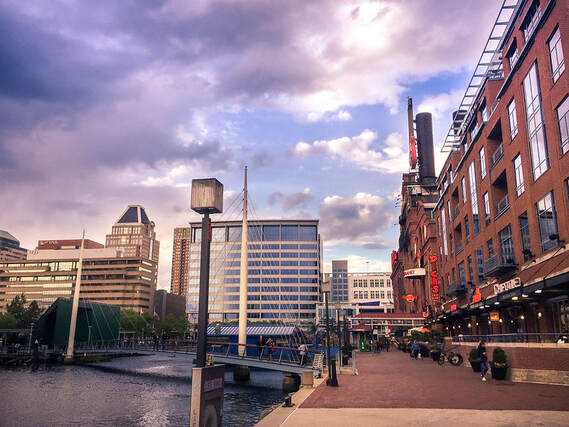
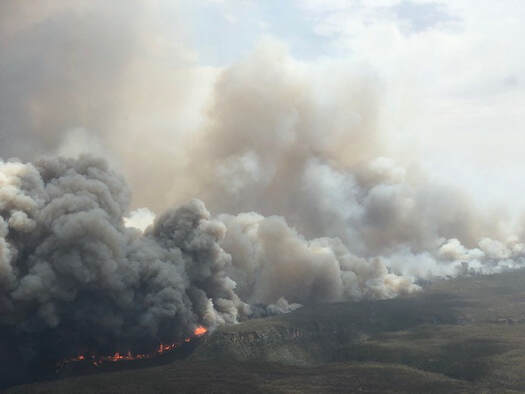
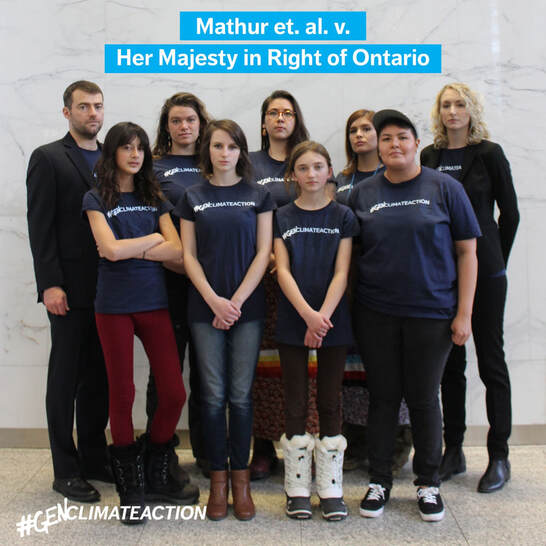
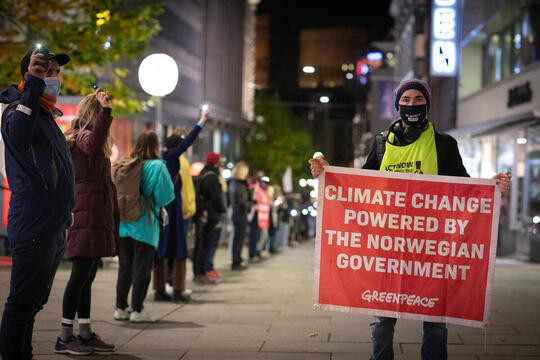
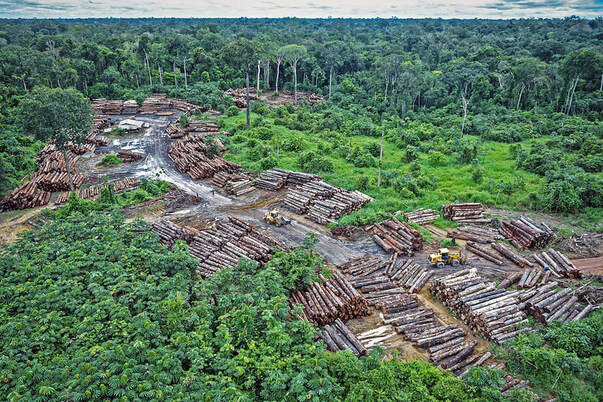
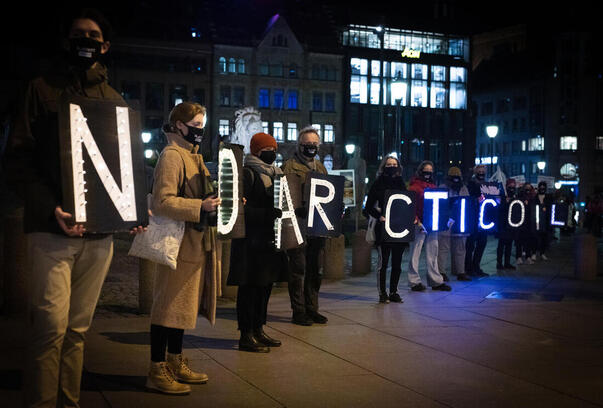
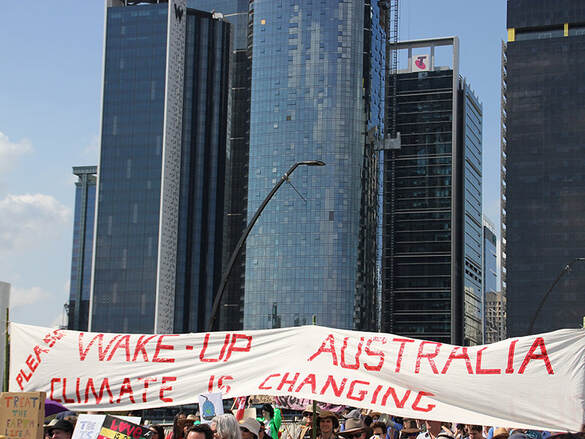
 RSS Feed
RSS Feed